Filter by

Animals as specific objects of obligations under Polish and German law
Defining where the needs of contracting parties end, and where the mistreatment of animals begins is especially difficult in contract law, where protecting animals is not a basic premise. Thus, although animal law is a widely discussed topic, the position of animals under civil law has not been discussed comprehensively before. The first chapters of the book set the background for subsequent ci…
- Edition
- -
- ISBN/ISSN
- 9783737010443, 3737010447
- Collation
- -
- Series Title
- -
- Call Number
- -
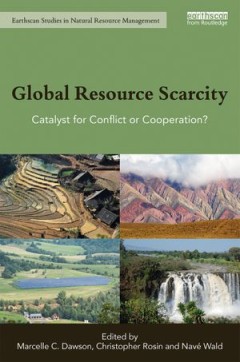
Global Resource Scarcity
A common perception of global resource scarcity holds that it is inevitably a catalyst for conflict among nations; yet, paradoxically, incidents of such scarcity underlie some of the most important examples of international cooperation. This volume examines the wider potential for the experience of scarcity to promote cooperation in international relations and diplomacy beyond the traditional b…
- Edition
- -
- ISBN/ISSN
- 9781315281605, 1315281600
- Collation
- -
- Series Title
- -
- Call Number
- -
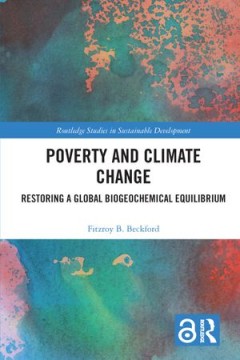
Poverty and Climate Change
Most, if not all of the global biogeochemical cycles on the earth have been broken or are at dangerous tipping points. These broken cycles have expressed themselves in various forms as soil degradation and depletion, ocean acidification, global warming and climate change. The best proposal for an organic solution to fixing the myriad broken cycles is a deliberate investment in solutions that fi…
- Edition
- -
- ISBN/ISSN
- 9781138345416
- Collation
- -
- Series Title
- -
- Call Number
- -
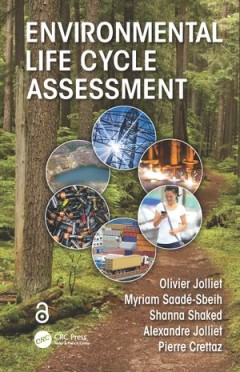
Environmental Life Cycle Assessment
Environmental Life Cycle Assessment is a pivotal guide to identifying environmental problems and reducing related impacts for companies and organizations in need of life cycle assessment (LCA). LCA, a unique sustainability tool, provides a framework that addresses a growing demand for practical technological solutions. Detailing each phase of the LCA methodology, this textbook covers the histor…
- Edition
- -
- ISBN/ISSN
- 9781439887660
- Collation
- -
- Series Title
- -
- Call Number
- -

Poverty and Climate Change
Most, if not all of the global biogeochemical cycles on the earth have been broken or are at dangerous tipping points. These broken cycles have expressed themselves in various forms as soil degradation and depletion, ocean acidification, global warming and climate change. The best proposal for an organic solution to fixing the myriad broken cycles is a deliberate investment in solutions that fi…
- Edition
- -
- ISBN/ISSN
- 9781138345416
- Collation
- -
- Series Title
- -
- Call Number
- -
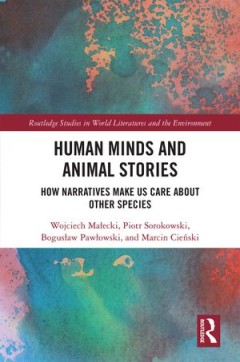
Human Minds and Animal Stories
The power of stories to raise our concern for animals has been postulated throughout history by countless scholars, activists, and writers, including such greats as Thomas Hardy and Leo Tolstoy. This is the first book to investigate that power and explain the psychological and cultural mechanisms behind it. It does so by presenting the results of an experimental project that involved thousands …
- Edition
- -
- ISBN/ISSN
- 0429590059
- Collation
- -
- Series Title
- -
- Call Number
- -
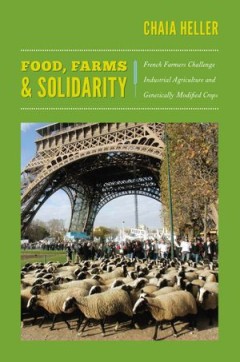
Food, Farms & Solidarity
The Confédération Paysanne, one of France's largest farmers' unions, has successfully fought against genetically modified organisms (GMOs), but unlike other allied movements, theirs has been led by producers rather than consumers. In Food, Farms, and Solidarity, Chaia Heller analyzes the group's complex strategies and campaigns, including a call for a Europe-wide ban on GM crops and hormone-t…
- Edition
- -
- ISBN/ISSN
- 9780822351184
- Collation
- -
- Series Title
- -
- Call Number
- -
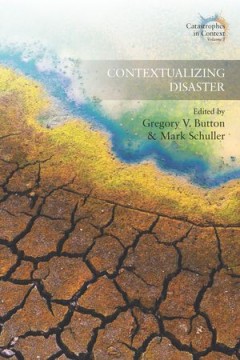
Contextualizing Disaster
Contextualizing Disaster" offers a comparative analysis of six recent highly visible disasters and several slow-burning, hidden, crises that include typhoons, tsunamis, earthquakes, chemical spills, and the unfolding consequences of rising seas and climate change. The book argues that, while disasters are increasingly represented by the media as unique, exceptional, newsworthy events, it is a m…
- Edition
- -
- ISBN/ISSN
- 9781785332807
- Collation
- -
- Series Title
- -
- Call Number
- -
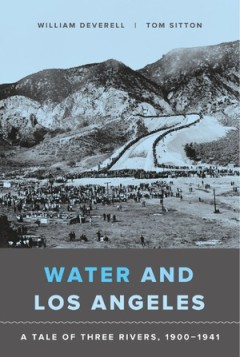
Water and Los Angeles
Los Angeles rose to significance in the first half of the twentieth century by way of its complex relationship to three rivers: the Los Angeles, the Owens, and the Colorado. The remarkable urban and suburban trajectory of southern California since then cannot be fully understood without reference to the ways in which each of these three river systems came to be connected to the future of the me…
- Edition
- -
- ISBN/ISSN
- 9780520965973
- Collation
- -
- Series Title
- -
- Call Number
- -
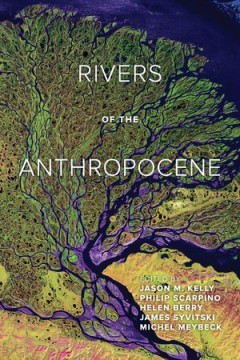
Rivers of the Anthropocene
This exciting volume presents the work and research of the Rivers of the Anthropocene Network, an international collaborative group of scientists, social scientists, humanists, artists, policymakers, and community organizers working to produce innovative transdisciplinary research on global freshwater systems. In an attempt to bridge disciplinary divides, the essays in this volume address the c…
- Edition
- -
- ISBN/ISSN
- 9780520295025
- Collation
- -
- Series Title
- -
- Call Number
- -
 Computer Science, Information & General Works
Computer Science, Information & General Works  Philosophy & Psychology
Philosophy & Psychology  Religion
Religion  Social Sciences
Social Sciences  Language
Language  Pure Science
Pure Science  Applied Sciences
Applied Sciences  Art & Recreation
Art & Recreation  Literature
Literature  History & Geography
History & Geography